This Popular Summer Activity Might Cause Cancer
No, it has nothing to do with tanning!
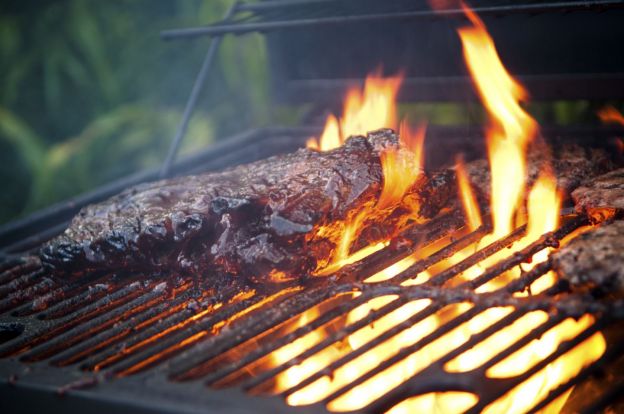
The Link Between Grilling and Cancer
As soon as the weather gets warm, millions of Americans fire up their grills and chow down on perfectly charred meats. However, as good as they may taste, experts at the National Cancer Institute and the American Institute for Cancer Research warn that those grilled meats could be increasing our risk for certain cancers.
According to their research, the National Cancer Institute says that "muscle meats," such as beef, pork, fish, and poultry contain two carcinogenic chemicals that can be activated while grilling. The first chemical is called heterocyclic amine (HCA) and it's activated when amino acid and sugar react to high temperatures, like the ones reached when grilling over an open flame.
The second chemical is called polycyclic aromatic hydrocarbons (PAH) and it's formed when fat drips onto the heat source and causes flames and smoke. The PAH in the smoke attaches to the meat's surface and we ingest it.
Though this all sounds scary, there are steps that you can take to reduce your risk while still enjoying outdoor cooking.
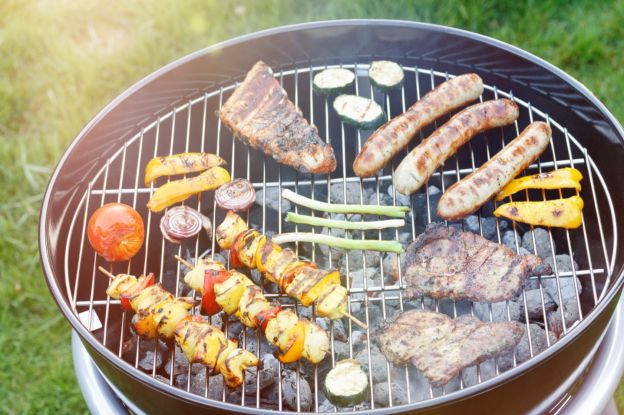
How to Reduce Your Risk
- One of the American Institute for Cancer Research's first recommendations is to change up your menu. We should all reduce our consumption of red and processed meats in general, as they are carcinogenic no matter how they are prepared. Instead, the AICR says to try fish or veggies because of their reduced cooking times. Doing so will lower your risk significantly.
- AICR also recommends cooking your meat another way first—such as the oven—then finishing it on the grill for color. This reduces the amount of time that your food is exposed to the open flame and gives the chemicals in question less time to form. You'll still get that flame-grilled flavor, but with lower risk!
- Instead of putting the meat directly on the grill, try cooking it in aluminium foil or on a pre-soaked wood plank. Even just this small barrier between the meat and the flame can reduce your cancer risk without compromising flavor.
- The National Cancer Institute says that another way to reduce your risk is to keep turning over the meat on the grill. This will "substantially reduce HCA formation" by preventing one spot from being exposed to the flame too long and burning.
- This last piece of advice might be the hardest. After all, the charred bits are the best part, right? Well, both AICR and the National Cancer Institute recommend cutting off any charred bits of meat before you eat it so that you can avoid consuming higher concentrations of HCA and PAH.
If you keep getting stuck, check out our Quick Guide to Non-Stick Grilling.
More steaming articles
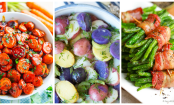 Hop into Flavor: 99 Effortless Easter...
Hop into Flavor: 99 Effortless Easter...
 Easter Sweets Showdown: Ranking the...
Easter Sweets Showdown: Ranking the...
 25 fast beef dinners you can't mess up
25 fast beef dinners you can't mess up
Chef Tips and Tricks
Ingredients
- 1 tbsp neutral oil
- 250g / 2 cups pork fillets, cubed
- 1 /4 cup caramel
- 100ml / 1/2 cup water
- 1 tbsp Vietnamese fish sauce (Nuoc Cham)
- 1 tbsp soy sauce
- 1 tbsp grated ginger
- Crushed peanuts
Method
- Brown the pork fillet in a skillet with the oil
- Add the caramel, water, fish sauce, soy sauce and fresh ginger.
- Simmer for 10 minutes (until the liquid has reduced)
- Serve over white rice with crushed peanuts.
- Enjoy!
Pssst like this? You'll LOVE this Chinese jalapeno chicken recipe!
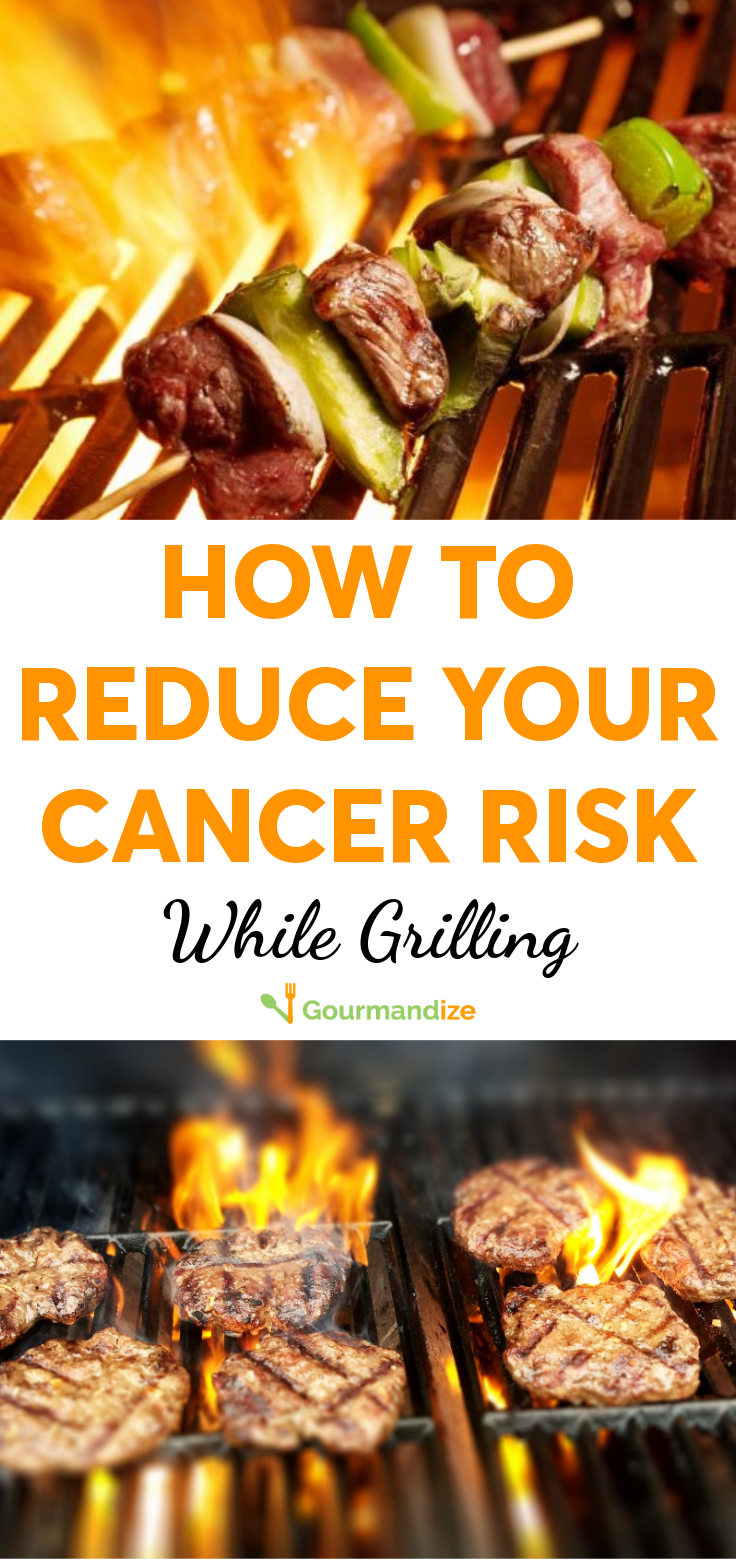
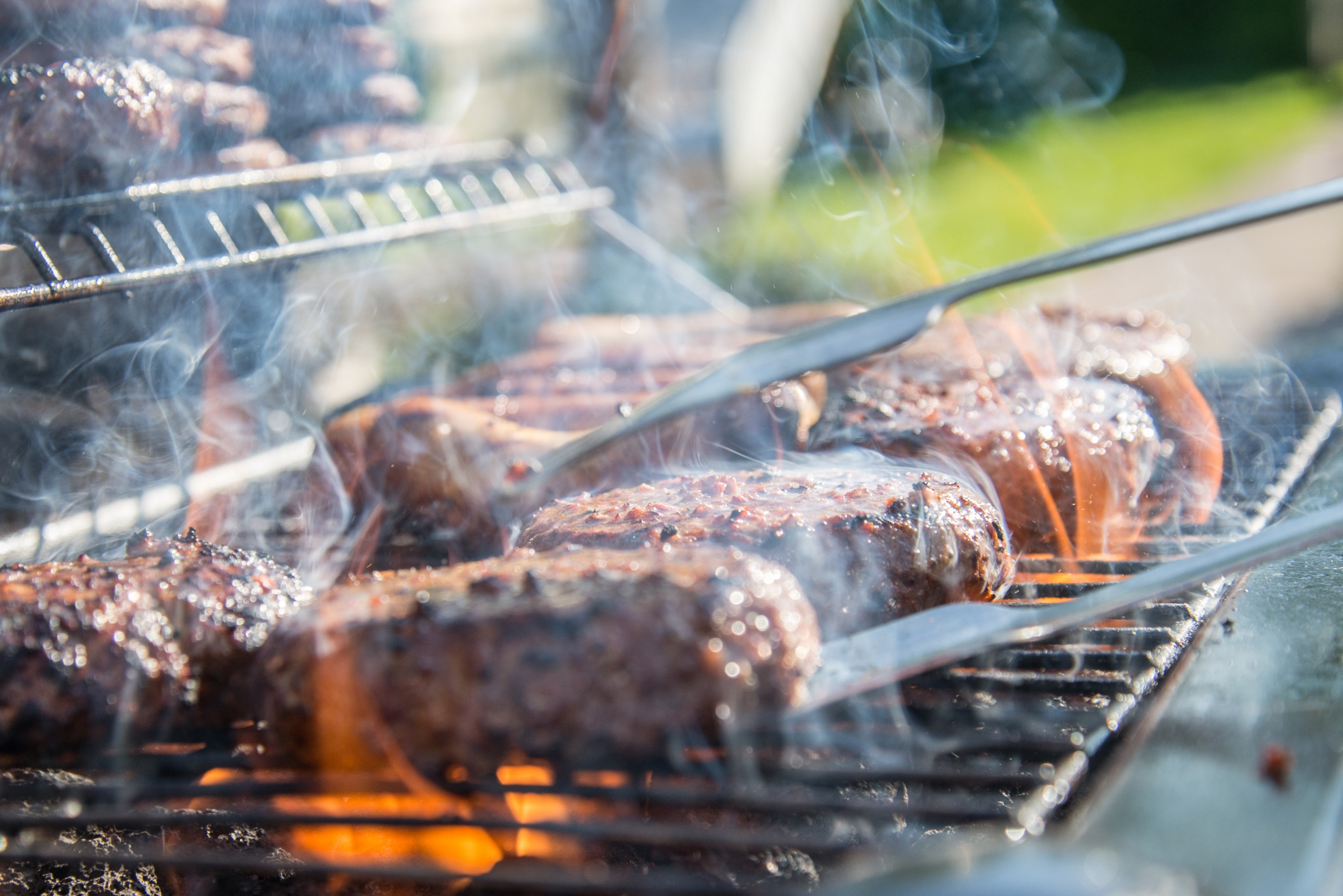

Comment on this article